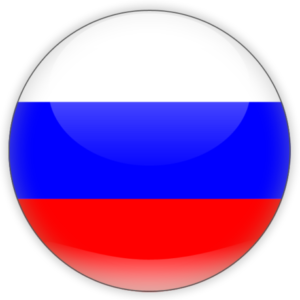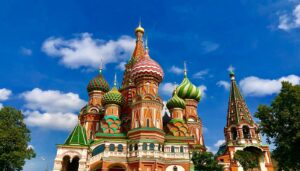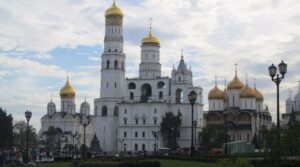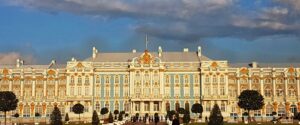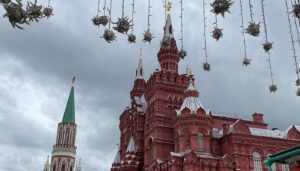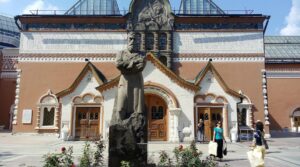MBBS in RUSSIA
MBBS in Russia
Intake 2025
-
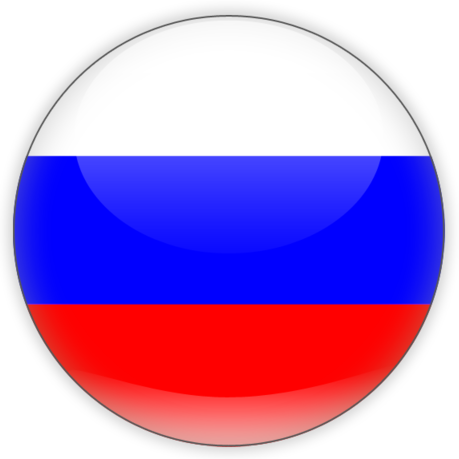
About Russia
-

Why Russia?
-

Geography of Russia
-

MBBS in Russia
-

Advantages
-

Cost of Study in Russia
-

Admission Procedure
-

Required Documents
-

Eligibility Criteria
-

Scholarship
-

Syllabus
About Russia
Russia is the biggest country in the world, combining the most interesting features of history, culture, and modern development. It occupies the two parts of continents: Europe and Asia, with breathtaking landscapes, vibrant cities, and a very rich cultural heritage.
For international students, Russia can offer a very reasonable combination of affordability in living and staying while being hospitable. Living in Russia as a medical student is quite an opportunity lively city with excellent educational facilities. Excellent infrastructure, efficient public transportation, and a variety of cuisines make it stand out. Some cities, like Moscow and Saint Petersburg, present modern facilities with a historical touch in their buildings, while others serve as an amalgamation point for students from various backgrounds. From the fascinating beauty of Red Square to the mesmerizing Lake Baikal, the country is indeed a hub that will make your experience rewarding beyond academics.
Why Study MBBS in Russia 2025?
For a long time, Russia has been one of the top priorities for medical aspirants from all over the world, and it is continue in 2025. It is the perfect combination of quality education, reasonably affordable costs, and worldwide recognition that makes an ideal destination to study MBBS in Russia.
Among the highlights of the MBBS program in Russia is their affordability. Tuition and the cost of MBBS in Russia, as well as the living expenses, are much cheaper in comparison with many countries of Western economy and without any sacrifice of quality. Moreover, most universities provide programs in English, which thus means no need to learn the local language.
Medical schools in Russia are fully equipped with the best infrastructure and a curriculum matching international standards. Many of the universities are recognized by the World Health Organization and the National Medical Commission, which makes their mbbs degree from russia valid throughout the world. These will help students in getting settled in medical careers in their home country or abroad. Another key advantage of having a different and multicultural atmosphere in Russia for the students’ benefits. More importantly, the admission procedure for MBBS in Russia for Indian students is quite hassle-free, including qualifications from NEET and no capping fees. At the same time, choosing to study medicine in Russia in 2025 allows for the chance at practical exposure to one of the great hospitals that enables the student toward the realistic clinical world.
Geography of Russia

Quick Information MBBS in Russia 2025
| Recognition | NMC and WHO approved |
| Eligibility | 50% in Physics, Chemistry and Biology Aggregate |
| Course Duration | 4.5 + 1 year Internship |
| Minimum Tuition Fee | Rs. 16 Lacs for entire course |
| Maximum Tuition Fee | Rs 60 Lacs for entire course |
| NEET | Yes, compulsory |
| IELTS/TOFEL | Not Required |
| Medium of Teaching | English |
| Cost of Living in Russia | $200-$300 per month |
Advantages of Study MBBS in Russia
There are so many advantages of studying MBBS in Russia that make it extremely popular among international students, especially in 2025. With a rich history of medical colleges, the medical colleges of Russia offer world-class training at an affordable cost and hence have emerged as a popular destination for aspiring doctors.
Low-cost MBBS in Russia is one of the major attractions toward studying medicine in Russia. MBBS in Russia is much cheaper compared to Western countries and private medical colleges in India. Because of reasonably priced Russia medical college fees with low living expenses, students can afford medical education without experiencing the financial burden that usually accompanies study abroad programs. The other key attractions are the excellent educational facilities accorded by the medical colleges in Russia, with prior approval by NMC. Most of these institutions have incorporated an educational curriculum in study that would meet global standards to ultimately prepare their candidates for licensure exams taken across the globe. It is postgraduate courses designed to include theory and practical aspects in depth. The admission process for MBBS Russia is very simple, and no entrance exams are required after NEET qualification for students coming from India, which ultimately makes MBBS admissions in Russia quite hassle-free and accessible to more students.
In addition, living in Russia as a medical student gives an opportunity to get exposed to various cultural environments, personal growth, and increasing one’s horizons. The country also hosts some of the best hospitals, which offer practical exposure to medical students. Generally speaking, the advantages of studying MBBS in Russia in 2025 include affordability, quality education, ease of the admission process, and career prospects in a worldwide healthcare setting.
MBBS Fees Structure In Russia 2025
The cost of MBBS in Russia is highly affordable if compared with other nations. The cost structure for study MBBS program in Russia lies in the bracket of 18,00-6,000 USD every year, which is pretty affordable and within the reach of both Indian and international students. Besides, the living cost in Russia is so affordable that all expenses, inclusive of accommodation, food, and other needs, range between $200 and $300 per month. All put together, these factors undoubtedly make Russia one of the greatest options for students in pursuit of quality education without having to bear much financial stress in studying MBBS.
Admission Process for MBBS in Armenia 2025
To admission process for MBBS in Russia is straight forward and designed to accommodate national and international students:
Step 1: Before filling application forms, candidates have to apply for the NEET entrance exam.
Step 2: Once the results of these tests are available. You will need to fill out an online application provided by the university.
Step 3: Print out your form. Send a scanned copy of the completed form to the University, along with the documents listed below.
Step 4: Scan the documents and send them by email with the subject line stating your intent, i.e. ‘Application for Admission’.
Step 5: Documents can only be submitted before the application deadline.
Step 6: After the University has verified the student’s documents, the student will receive an acceptance letter or rejection letter, depending on what the University decides.
Step 6: As soon as the candidate has been accepted, the initial fee needs to be paid. The fee acknowledgment letter will then be sent to them.
Step 6: After the University has verified the student’s documents, the student will receive an acceptance letter or rejection letter, depending on what the University decides.
Required Documents for MBBS in Russia
The student should keep all of the documents ready before taking admission. The required documents for MBBS in Russia is as follows-
- Transcripts of previous academic studies
- Accredited evaluation of foreign transcripts
- Scores on relevant tests including NEET
- Passport copy in good standing
- Recommendation letters
- Statement of purpose
- Curriculum vitae
- Background check for criminal convictions of the applicant
- The student visa
- Copies of passport-size photographs
The Eligibility Criteria for Admission MBBS in Russia
- Age Eligibility: Candidates should have attained the age of 17 years as of December 31st of the admission year.
- Eligibility Criteria: A candidate must pass 10+2 (High school) with physics, chemistry and biology as main subjects.
- Minimum Marks: For general category students, the candidate should have secured at least 50% marks in Physics, Chemistry, and Biology taken together and for reserved category students, 40%.
- Eligibility for NEET: Students from India must qualify for the NEET, or National Eligibility and Entrance Test, to be considered for admission. However, Georgian universities do not require entrance exams for direct admissions.
- Language Requirements: While English is the language for almost all programs, the teaching language for the MBBS Program in Georgia basically requires the student to know the very basics of English. Some universities ask for proficiency in English proof, such as TOEFL and IELTS, but this isn’t obligatory for most.
- Health Certificate: Candidates have to provide a medical fitness certificate that shall declare them medically fit to enter the MBBS course.
However, it is always advisable to confirm with the university regarding necessary documents and other forms to be filled out for your application.
While MBBS in Russia is affordable, the availability of scholarships makes Russia far more attractive for international students, including those from India, to pursue higher education and training. Their financial constraints do not become significant barriers to this end through scholarships.
1. Government of Russian Federation Scholarships
This is a state-level scholarship that covers tuition fees, accommodation costs, and maintenance allowance. This would be a golden opportunity for those students who dream of studying MBBS in Russia without having to bother about financial constraints.
2. Benjamin A. Gilman Scholarships
The scholarship facility is also available for students of a foreign language such as Russian. medical colleges in Russia offer an educational grant to those students from abroad who have a very good academic record, for covering the expenses for studying medical courses.
3. SRAS (The School of Russian and Asian Studies)
This scholarship targets applicants in the US only. However, there are other non-governmental Russian scholarships or university-specific scholarships that are open to international students by different higher learning institutions. Along with this, the said scholarships, almost all medical colleges fees in Russia are relatively too low, covered by governmental financing. In the same vein, fees will not therefore be a concern factor impeding the determination of students pursuing their dream through studying MBBS, wherever they come across the globe. Hence, students can make their medical colleges in Russia affordable and rewarding by availing of subsidized tuition or applying for scholarships.
Syllabus of MBBS In Russia
The syllabus for MBBS is the same for all countries. The difference in the syllabus is only the length and sequence of the subject. Russian universities follow European pattern.
| First Year | The first year focuses on basics. There will be Biology, Physics, Chemistry, Nursing (surgery & therapy), Anatomy, Histology, Latin, and Public Health. As an addition, students study History, Economics, Philosophy, Culturology, Russian language, Physical Training, Basics of Research and Mathematics. |
|---|---|
| Second Year | The second-year focuses on the functioning of the human body and metabolic processes. It includes subjects like Physiology, Biochemistry, Immunology, and Hygiene. As an addition, students study Psychology, Medical Law, Bioethics, and the Russian language for doctor-patient communication. Students must work as a nurse in the hospital for minimum two weeks, after obtaining the degree. |
| Third Year | In the third year, students undergo training in the etiology of the diseases and the action of drugs, which includes Microbiology, Pathology, Pharmacology, Radiology, Internal medicine, Topographical anatomy and Operative surgery. |
| Fourth Year | The 4th year begins with hospital cycles. The students undergo training in different departments of the hospital as part of their course. The practical class is divided into two parts, the first half comprising discussion and the second half practice in the patient ward of the department. In the fourth year, future doctors must go through the various departments in the hospitals like Surgery, Dermatology and Venereology, Obstetrics and Gynecology, Neurology, Therapy, Medical Rehabilitation, Urology, Public health, Pediatrics, phthisiology, and Endocrinology. |
| Fifth Year | In the fifth year, the students will get trained in E.N.T., Ophthalmology, Surgical Gynecology, Psychiatry, Traumatology, Orthopedics, Physiotherapy, Outpatient therapy, Gene therapy, and Infectious diseases. |
| Sixth Year | The last year of the MBBS includes Oncology and radiation therapy, Occupational diseases, Anesthesiology, Intensive care training, Dentistry, Clinical Immunology, General medical practice, Neurosurgery, Forensic medicine, and Epidemiology. |

